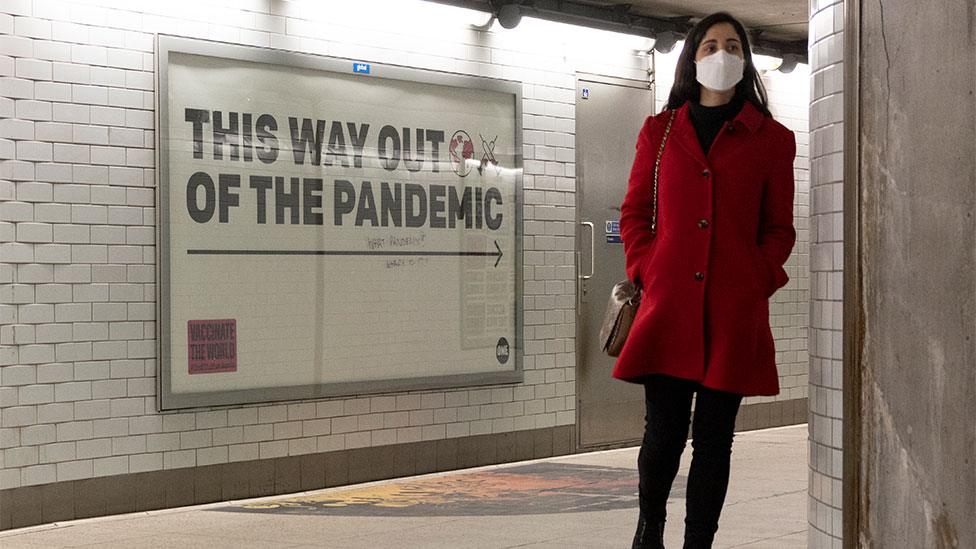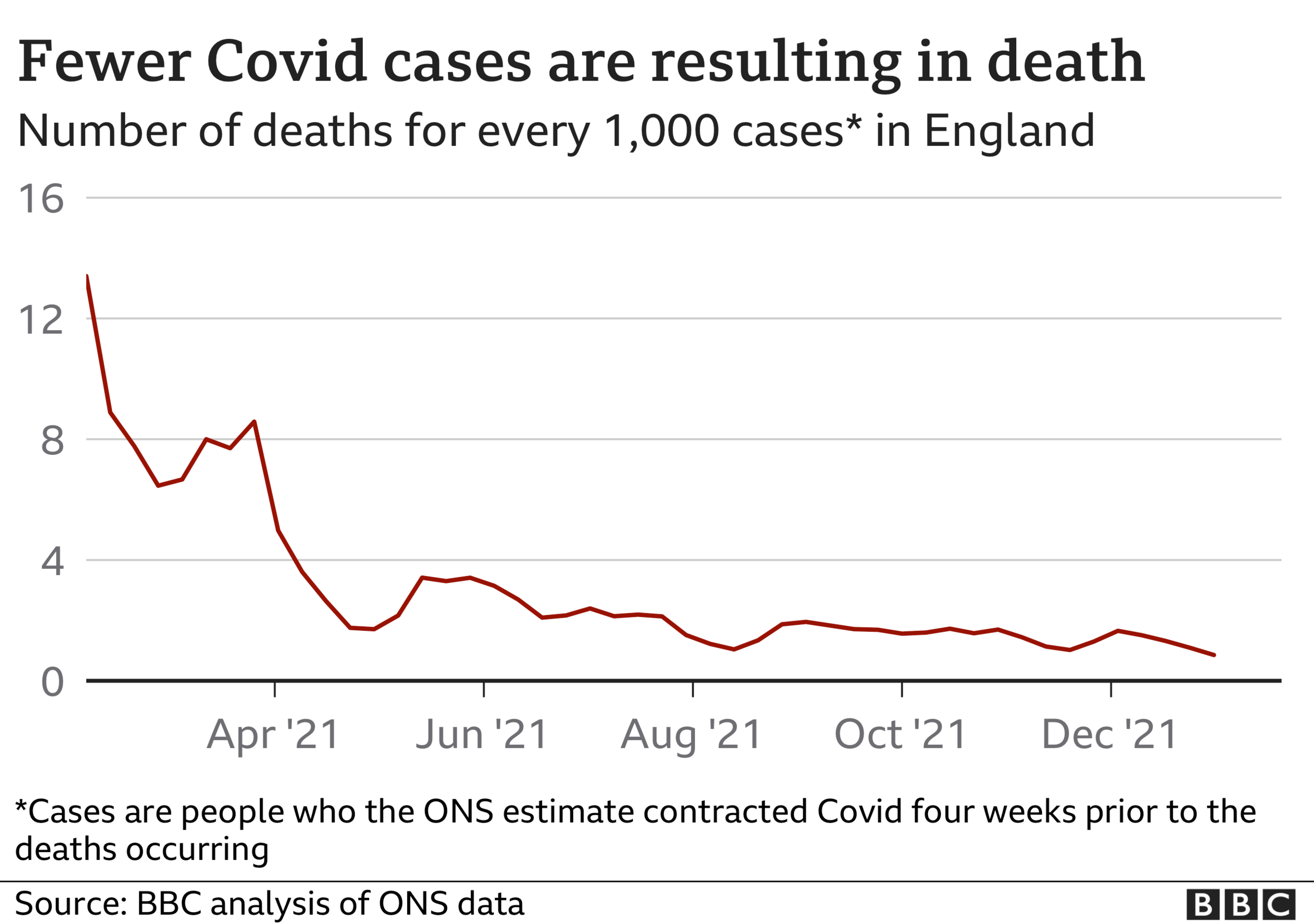Omicron's fall has slowed - should we worry?
- Published
- comments

Covid cases have been falling in the UK since early January - but that decline has now come to a halt.
For more than a week, the daily number of positive tests being reported has been averaging just above 90,000.
That's well above the peak of last winter. But how concerning is this?


In many ways the levelling-off was to be expected. Two basic things influence infection levels - the amount of immunity in the population and how much people mix.
And it was a combination of the two that saw the Omicron variant peak earlier this month.
The rapid rollout of boosters certainly helped - a recent booster reduces the chance of infection by close to three-quarters.
But low levels of mixing also played a role. By the end of December, adults were averaging about 2.7 contacts a day - close to what was seen in the first lockdown.
As people have returned to work and school, contacts will have increased, giving the virus more opportunity to spread.
Particularly high levels are now being detected in children and this seems to be translating to an increase in cases in their parents' age group.


Another factor that will come into play is waning immunity - by 10 weeks that initial protection against infection has started to wane quite significantly.
Cases are now going to "stay high until the spring" and continue to disrupt our daily lives, Zoe Covid symptom-tracking app lead scientist Prof Tim Spector believes.
"It's crucial that we're responsible with our new freedoms and help prevent the virus reaching the more vulnerable groups," he says.
Deaths and serious illness should keep falling
The good news, Prof Spector says, is most infections in the vaccinated are "mild", which should keep the numbers ending up in hospital and dying low.
That's because while protection against infection wanes, protection against serious illness is much more durable.


It explains why there has been a huge drop in the death rate.
And, even with such high levels of Covid in recent weeks, deaths appear to have peaked at a level - a bit below 300 a day - similar to that seen during a bad flu season.
University College London epidemiologist Prof Tim Colbourn says it is hard to predict the coming weeks, pointing out South Africa, where the variant was first identified, has seen cases keep coming down.
But serious illness and deaths in the UK could still continue to drop even if infections remain high or rise a little.
He says this is because a growing proportion will be reinfections, which should on average be milder still, and new treatments like Paxlovid, which trials suggest can reduce the risk of hospital admission or death among vulnerable adults by 89%.
"We have made huge strides in driving down the burden - and there's still more to come - but we're going to have to accept it's something we are all likely to catch at some point," Prof Colbourn adds.
Is suppressing infections an option?
The latter point is one scientists are increasingly making. But it does beg the question why more is not being done to try to reduce infections - after all restrictions are being eased across the UK.
Prof Colbourn says short of a stringent lockdown it is going to be hard to stop the virus spreading now.
"Those calling for continued suppression are not thinking it through," he says. "Countries trying this have still seen cases go up - Omicron is just too infectious."


France, with its stringent vaccine requirements to enter bars and restaurants, and Spain, with its strict mask mandates - which apply outdoors and to pupils aged six and over in schools - have both seen cases rise higher than in the UK.
The Netherlands has as well - despite imposing some of the toughest restrictions in Europe by closing hospitality settings, including bars, restaurants and museums, from mid-December until this week.
And this combination of the virus becoming almost unstoppable but also less severe means even those who once advocated a Zero-Covid approach, such as Edinburgh University's Prof Devi Sridhar, accept it is time to change tactics.
It was reasonable to move away from restrictions, she said in a recent article in the Guardian newspaper, external, as they were at risk of becoming more disruptive than the now "defanged" virus itself.
Data journalism by Christine Jeavans
Follow Nick on Twitter, external.
Read more from Nick.

LOOK-UP TOOL: How many cases in your area?
YOUR QUESTIONS: We answer your queries
GLOBAL SPREAD: How many worldwide cases are there?
TREATMENTS: What progress are we making to help people?
COVID IN SCHOOL: What are the risks?

Related topics
- Published5 July 2023

- Published5 July 2022

